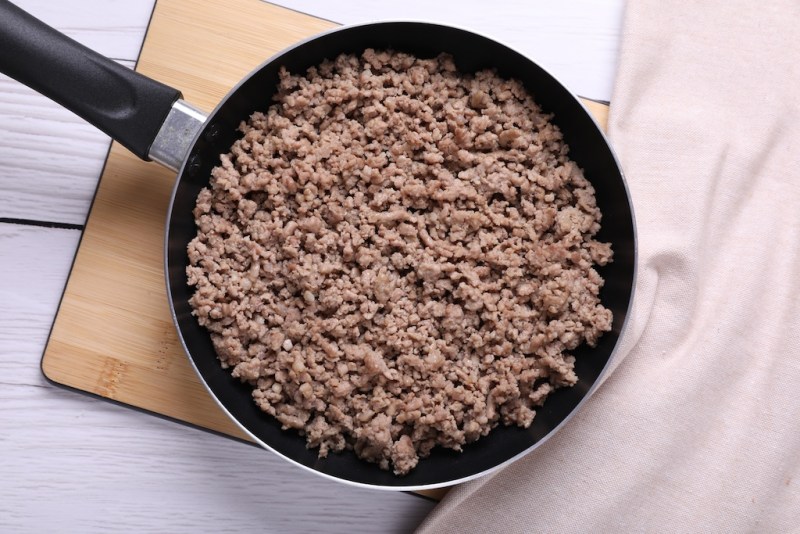
Lean ground beef, such as 93/7 ground beef, is an excellent source of protein and contains a rich nutrient profile, ideal for working into dinner recipes. But what exactly makes 93/7 ground beef nutrition so interesting? Here, we’ll break down everything you need to know about the nutritional value of lean ground beef and some easy ways to use it in your meals.
All about 93/7 ground beef nutrition

The name 93/7 ground beef refers to its fat percentage, of which 93% is lean beef, and the other 7% is its fat percentage. In comparison, 85/15 is another common type of ground beef, which contains a higher fat percentage with less overall protein. Whether you’re simply trying to get more protein into your meals or looking for dinners that work for a carnivore diet, ground beef is a great food to consume on a variety of diets. Consuming grass-fed beef, when possible, can result in an even higher nutrient profile, as cows are allowed to graze freely on grass for their entire lifespan.
B vitamins
B vitamins cannot be made or stored in the body naturally, which means we must consume healthy amounts of them through our diet. Lean ground beef is an excellent source of B vitamins that help your body maintain a healthy immune system. Just one 4-oz serving of 93/7 ground beef contains 38% of the daily recommended value of Niacin (also known as Vitamin B3), as well as an abundant amount of Vitamin B2, Folic Acid (Vitamin B9), and Thiamin (Vitamin B1). Niacin is not only important for your immune system but also plays an important role in the synthesis of reproductive hormones.
Iron
Ground beef is also an excellent source of iron, which helps your body make red blood cells. Animal protein such as ground beef contains heme iron which is easier for the body to use and absorb. Red blood cells are responsible for carrying oxygen throughout your body.
Other essential minerals
93/7 ground beef also contains lots of other essential nutrients in smaller amounts, such as magnesium, phosphorus, zinc, and potassium — each of which plays a critical role in our bodies.
How many calories are in 8 ounces of 93 lean ground beef?

The best way to measure the calorie content of beef is by using its weight when raw (before cooking). About 8 ounces of uncooked 93 lean ground beef is roughly 344 calories. An 8-ounce serving is the perfect portion to use for a dinner meal, which also contains about 48 grams of protein and 16 grams of fat. There are about 690 calories per pound (16 ounces) of 93/7 ground beef. If you can’t find 93/7 ground beef in your local butcher shop or grocery store, the next closest option is 90/10 ground beef, which contains only slightly more fat.
How to use lean ground beef in easy dinner meals

Take advantage of 93/7 ground beef nutrition by using ground beef in easy dinners. Ground beef is super simple to make and versatile, which means you’ll have lots of options to try in terms of seasoning and cooking methods before you get bored of this protein source. Discover a few easy ways to use ground beef in well-rounded meals.
Ground taco beef
Making taco meat with 93/7 ground beef is simple and easy. Simply cook your ground beef in a pan on the stovetop and add your favorite taco seasoning mix. From here, the choices are endless for what you wish to do with your taco beef. Whether you make taco bowls, burritos, hard shell tacos, or come up with something creative, taco beef is one of the easiest ways to use 93/7 beef.
Burgers
Forming ground beef into burger patties is simple and easy and gives you lots of flexibility to season any way you choose. Since 93/7 beef is quite lean, it can sometimes get dried out without some added moisture. Adding some mustard or Worcestershire sauce to your ground beef before forming the patties can help keep it moist during cooking.
Simple and seasoned
Ground beef tastes delicious on its own or served over rice such as in Korean ground beef. Find your favorite seasoning or sauce blend and cook ground beef in a pan over the stovetop. Serve with starch like rice or potatoes and a vegetable for a perfect, well-rounded meal.



